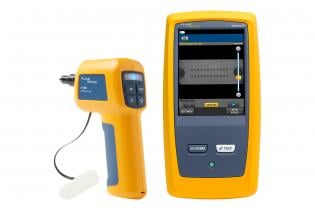High-quality ofda devices provide precise fibre testing and consistent results.
High-quality ofda devices provide precise fibre testing and consistent results.
Blog Article
Exploring the Conveniences of Optical Fibre Evaluating for Improved Interaction Equipments
The importance of optical fiber testing in modern communication systems can not be overemphasized, as it serves as a structure for making certain network reliability and efficiency. Making use of innovative approaches such as Optical Time-Domain Reflectometry (OTDR) and insertion loss evaluation, companies can not just recognize mistakes but also optimize their configurations. This proactive screening method has extensive effects for signal quality and operational effectiveness, elevating the inquiry of just how these methods contribute to lasting sustainability in an ever-evolving technical landscape. Comprehending these characteristics is essential for stakeholders aiming to preserve a competitive edge.
Importance of Optical Fiber Testing
The significance of optical fibre testing can not be overstated in today's data-driven atmosphere. As companies significantly rely upon high-speed information transmission for everyday operations, the honesty and performance of optical fiber networks are extremely important. Testing makes certain that these networks can support the vast quantities of data generated and transferred flawlessly, fostering efficient interaction and connectivity.
Optical fiber testing offers several essential functions, including confirming installment quality, identifying prospective faults, and determining general system efficiency. Routine testing can prevent expensive downtimes and service disturbances, allowing organizations to keep operational continuity. It assists in conformity with market requirements and policies, guaranteeing that fiber optic installments satisfy called for requirements for safety and integrity.
Furthermore, screening can improve the durability of fiber optic systems. By proactively recognizing concerns such as signal loss, depletion, or adapter failings, organizations can resolve issues before they escalate, therefore prolonging the life of their facilities. In recap, optical fiber screening is not simply a technical need but a calculated financial investment that enhances network reliability, optimizes performance, and inevitably supports the growth and effectiveness of modern interaction systems.
Secret Testing Methods

OTDR is a vital technique made use of to identify faults, step splice losses, and analyze the general stability of a fibre optic link. By sending a pulse of light down the fiber and assessing the shown light, service technicians can identify areas of mistakes and review the network's efficiency over fars away.
Insertion loss screening determines the amount of signal loss that occurs when light passes with a connection or splice. This method is essential for verifying that connections satisfy given loss limits, which is necessary for maintaining optimum efficiency in interaction systems.
Optical return loss screening evaluates the amount of light mirrored back in the direction of the source as a result of imperfections in the fiber or connections. High return loss worths show better performance and decreased signal deterioration.
With each other, these testing methods supply a thorough analysis of fiber optic networks, guaranteeing their reliability and capability in varied interaction applications.
Influence On System Efficiency
Effective optical fiber testing directly affects the overall efficiency of communication systems. By making great site certain the stability of fibre optic wires, testing determines prospective mistakes such as depletion, find this splice loss, and adapter imbalance. These problems can significantly break down signal top quality, causing disruptions and lowered information transmission rates.

Furthermore, normal optical fiber screening contributes to long-term system sustainability. It enables very early detection of wear and tear, permitting prompt upkeep and upgrades before significant failings take place. This not just lengthens the life-span of the infrastructure however likewise guarantees that communication systems stay affordable in regards to efficiency.
Cost-Effectiveness and Effectiveness
Cost-effectiveness is a crucial factor to consider in the release and maintenance of optical fibre networks. Executing robust optical fibre screening procedures can dramatically decrease operational expenses by identifying concerns before they intensify into significant problems. optical fibre testing equipment. By identifying mistakes, depletion, and various other efficiency barriers early, organizations can avoid expensive repair services and downtime, which can interfere with solutions and result in revenue loss
Moreover, effective testing approaches improve the setup process, permitting specialists to work better. This equates to decrease work prices and faster task completion times. Advanced testing devices, such as Optical Time Domain Reflectometers (OTDRs), allows an exact analysis of fibre top quality, guaranteeing that only optimum products are made use of, thereby minimizing waste.
Regular screening additionally adds to far better source allocation. By comprehending the network's performance, organizations can make enlightened decisions about upgrades and expansions, making sure that investments are made where they are most needed. In summary, optical fiber screening improves cost-effectiveness and effectiveness, supporting the lasting sustainability and competition of communication systems in a progressively demanding market.
Guaranteeing Long-Term Reliability
Implementing extensive optical fibre screening not just improves expense savings and operational effectiveness yet likewise plays an essential role in making sure the long-lasting dependability of communication networks. Constant screening methods, consisting of attenuation and bandwidth evaluations, aid identify prospective destruction in fibre performance prior to it results in service interruptions.
By utilizing sophisticated testing techniques, Read Full Report network drivers can pinpoint mistakes or weaknesses in the fibre infrastructure, permitting timely remediation. This aggressive approach minimizes downtime, making certain that communication systems stay functional and efficient. Furthermore, regular testing adds to the growth of an extra durable network, as operators can adapt and optimize their framework based upon real-time information insights. optical fibre testing equipment.
Furthermore, making sure compliance with industry criteria through optical fibre screening reinforces the top quality and integrity of the whole interaction system. This adherence not just strengthens self-confidence amongst stakeholders however likewise lines up with regulatory demands, which are significantly rigid.
Verdict
To conclude, optical fibre screening works as an essential part in enhancing communication systems. By employing various screening techniques, such as OTDR and insertion loss evaluations, networks can attain optimal performance and reliability. The aggressive identification of faults not only boosts signal quality however likewise lowers downtime, ultimately adding to cost-effectiveness and functional effectiveness. Adherence to sector criteria fosters stakeholder self-confidence, guaranteeing the long-term sustainability of interaction facilities in a significantly data-driven landscape.
Report this page